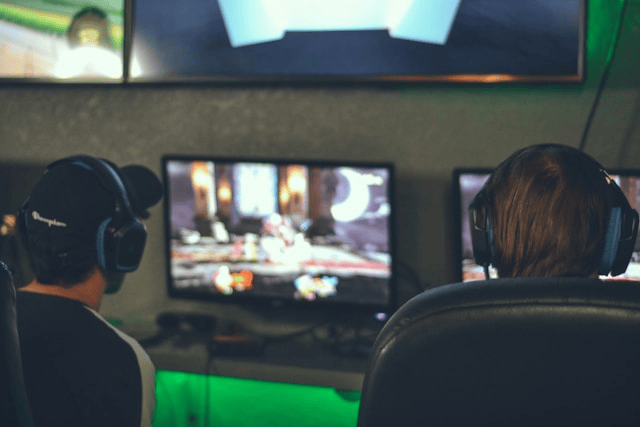Video games are supposed to be fun but if you’ve ever thrown a controller, rage-quit a match, or shouted at your screen, you’re not alone. Improving at video games can be challenging, and without the right mindset and methods, it’s easy to fall into the trap of frustration and burnout. The good news is, there are smarter, healthier ways to level up your skills. This guide will show you how to get better at video games without losing your cool.
Why Frustration Slows You Down
Gaming frustration usually stems from high expectations, repeated failure, or comparing yourself to others. While it’s natural to feel annoyed when you lose or make mistakes, staying in that mindset creates a mental block. Frustration clouds your ability to learn, adapt, and have fun. If you really want to improve at gaming, your emotional state is just as important as your technical skill.
Let’s break down how you can build both.
Set Realistic Goals
One of the most powerful ways to improve at gaming is by setting specific, realistic goals. “Get good” isn’t a goal it’s a vague wish. Instead, try something like:
-
“Increase my accuracy by 10%.”
-
“Win 3 ranked matches today.”
-
“Learn one new strategy or combo this week.”
By focusing on smaller, clear objectives, you give yourself structure and measurable progress. This reduces frustration because you’re no longer obsessing over every win or loss—you’re focused on consistent growth.
Practice With Purpose
Many players believe that the more they play, the better they’ll get. While time helps, how you use that time matters more. Playing the same way every day without change creates a plateau.
If you want to practice video games effectively, try:
-
Using custom games to work on aim or movement.
-
Playing training modes to master specific skills.
-
Watching tutorial videos or pro guides to learn new techniques.
This is called deliberate practice, and it’s one of the fastest ways to build gaming skill without wasting time or patience.
Analyze Your Gameplay
To get better, you need to understand what’s holding you back. That’s where game analysis comes in.
Start by:
-
Recording or replaying your matches.
-
Looking for repeated mistakes (poor positioning, missed opportunities).
-
Comparing your playstyle with higher-ranked players or streamers.
The goal is to learn from your losses, not just feel bad about them. Keep a calm, analytical mindset. Instead of saying “I suck,” ask “What could I do differently next time?” This shift is key to learning how to get better at video games without getting discouraged.
Learn Game Mechanics Deeply
Whether you play shooters, MOBAs, fighters, or RPGs, understanding the game’s core systems gives you a huge advantage.
-
Learn how the ranking system works.
-
Study character abilities, item effects, and map layouts.
-
Understand the current meta (what strategies or characters are most effective).
Mastering the basics and understanding the rules of the game often separates intermediate players from advanced ones. The more you understand the “why” behind decisions, the more confident and in control you’ll feel during matches.
Take Breaks and Manage Tilt
You’ve probably heard the term “tilt” that emotional spiral where frustration leads to worse gameplay, which leads to more frustration. It’s a common enemy for players trying to improve.
Here’s how to fight tilt:
-
Take regular breaks, especially after losses.
-
Switch games or play a chill single-player title for a bit.
-
Do something physical stretch, walk, or grab a drink of water.
Recognizing when you’re tilting is half the battle. Taking a short break can reset your focus and help you come back with a clearer mind.
Play With Others and Join a Community
Gaming doesn’t have to be a solo journey. Playing with friends or joining a gaming community can make the process more enjoyable and educational.
Here’s how playing with others helps:
-
They can give you real-time feedback and tips.
-
You can watch and learn from their playstyle.
-
It builds motivation and keeps the experience fun.
Join Discord servers, Reddit threads, or in-game guilds. Being around other people who want to improve at gaming helps you stay inspired and avoid isolation.
Adopt a Growth Mindset
The difference between players who improve and those who quit often comes down to mindset. A growth mindset means believing that skill comes from effort, not just talent.
Instead of saying:
-
“I’m bad at this game.”
Say:
-
“I’m still learning this game.”
This simple mental shift helps you stay patient and focused. Everyone starts somewhere. The best players in the world all began with zero experience they just kept going.
Track Your Progress
Progress in gaming isn’t always obvious. That’s why it helps to keep a log of your improvements.
You can track:
-
Match statistics (win rate, kills, accuracy).
-
Daily goals and whether you hit them.
-
New strategies or skills you learned.
Over time, this shows you just how far you’ve come. It also reinforces positive habits and builds your confidence.
Final Thoughts
Improving at video games isn’t just about grinding harder, it’s about playing smarter, staying calm, and keeping the game fun. By setting realistic goals, practicing deliberately, analyzing your gameplay, and managing your emotions, you’ll grow faster and enjoy the process more.









